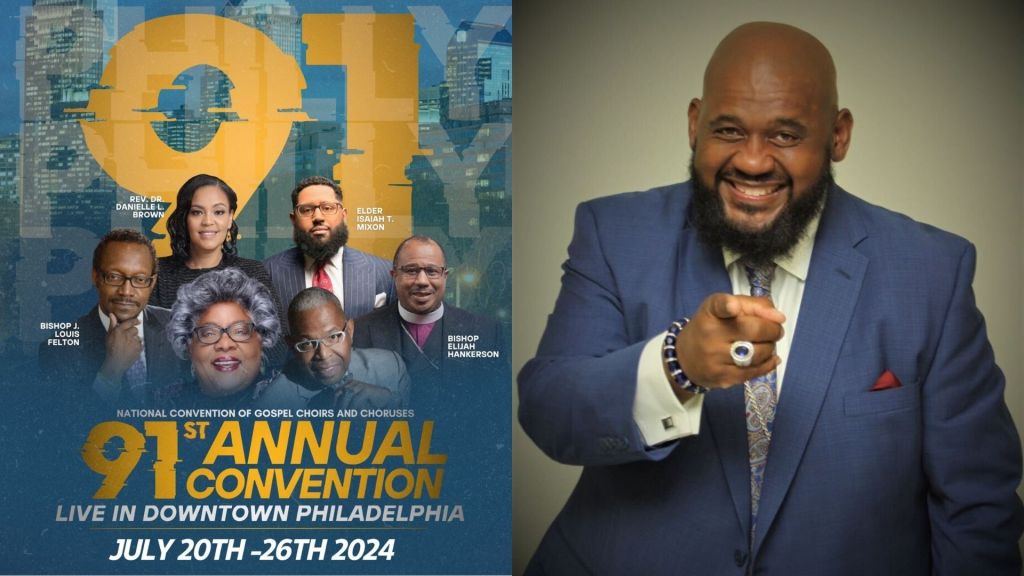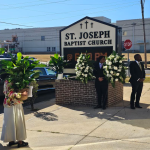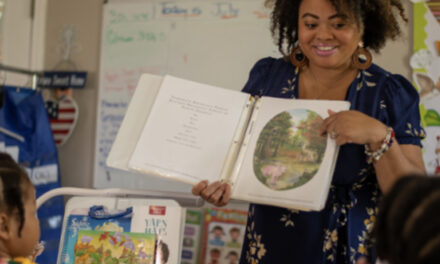The 91st National Convention of Gospel Choirs and Choruses celebrated both traditional artists and contemporary sounds.
By Rev. Dorothy S. Boulware
Word in Black
A celebration of faith, culture, and musical innovation went down in late July in Philadelphia at the 91st National Convention of Gospel Choirs and Choruses, which gathers musicians and singers of all genres of gospel music.

The convention’s continuing legacy is to foster and promote an appreciation and high standard of excellence for gospel music and gospel music performances. It offers sessions for youth and adults who seek to enhance their skills as singers, instrumentalists, educators and leaders. It is also the place to showcase newly written gospel music.
And as contemporary artists push boundaries and face criticism reminiscent of the gospel’s early days, it provides a space for intergenerational dialogue and sharing new works that keep gospel alive.
From Blues to Blessings
The convention’s name is long, but its members lovingly call it the Dorsey Convention. Its renowned founder, Dr. Thomas A. Dorsey — the “Father of Gospel Music” — led the convention from its founding in 1932 until his death in 1993. Dorsey wrote more than 1,000 gospel songs, including “If You See My Savior Tell Him That You Saw Me;” “Take My Hand, Precious Lord;” “Peace in the Valley;” and “If You See My Savior.”
The funny thing about the NCGCC’s founder is that his type of music was disparaged by regular churchgoers back then in the same way as gospel creators such as James Cleveland with his worldly adaptations, Kirk Franklin with his song “Stomp,” and the gospel rappers with their spoken word.
Dorsey is said “to have combined the good news of the gospel with the bad news of the blues,” according to author Anthony Heilburt.
Nurturing Talent, Celebrating Diversity
Eric Scott is one of those whose music was presented in Philadelphia. His composition “With My Whole Heart” features lead vocals sung by his son. His music has also been presented at a past Dorsey Convention in Baltimore and at the Hampton Ministers Conference two years ago.
Scott and his wife, Pastor Marsha Scott are founders of the Lighthouse Worship Center in Baltimore, a “progressive, multi-generational inner-city ministry expanding the Kingdom of God through sincere worship and preaching of the word of God,” according to its website.
Scott has been a composer for quite some time and this latest is just one of those shared with the gospel music world. Knowing he was lead student accompanist at Morgan State University under the late Dr. Nathan M. Carter is a dead giveaway to his great giftedness. If you know, you know. But Scott is also out here innovating and keeping gospel alive and fresh.
Other presenters of their own compositions included Chicago-based gospel artist Kevon Carter, and Baltimore gospel artists Daniel Curtis and Eric Waddell.
With performances by luminaries like Bishop Hezekiah Walker and a host of choirs and ensembles — ranging from traditional to contemporary — the convention put the diversity of gospel on full display. And as gospel music continues to grow and evolve, the Dorsey Convention stands as a through-line of Black expression, spirituality, and resilience.
So next time you hear someone complain about gospel music changing or “not being what it used to be,” remind them that’s the point. It’s always changing, always adapting, but always speaking to the soul. And conventions like this make sure that conversation keeps going, generation after generation.
This article was originally published on WordinBlack.com.
The post At the Dorsey Convention, the soul of Gospel shines appeared first on AFRO American Newspapers.











